Marin Gillis, PhD, LPh
Clinical Educator Spotlight
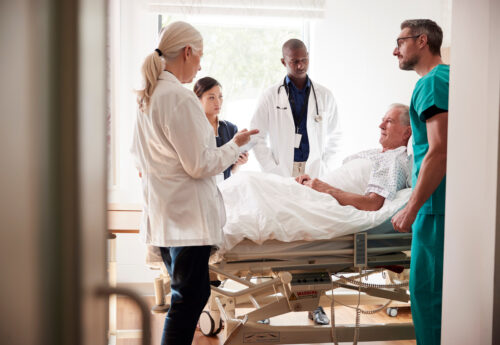
We are excited to spotlight Marin Gillis, PhD, LPh Senior Executive Dean for Faculty Affairs and Learning Innovation at Roseman University College of Medicine.
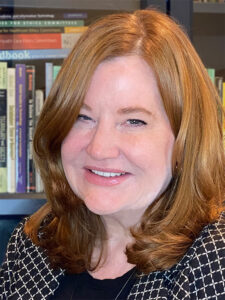
You are a philosopher who teaches ethics, professionalism, and health humanities to medical students, residents, and practicing physicians, what does the discipline of philosophy add to medical education?
The discipline of philosophy contributes to medical education in three main ways: by providing a conceptual framework for thinking about ethical issues in medicine, fostering a reflective and critical approach to medical practice, and promoting a deeper understanding of the human condition, including the experiences of finitude, uncertainty, and vulnerability.
Medical practice involves complex ethical questions that are not easily resolved by relying solely on scientific knowledge or technical expertise. By studying ethics, medical students and practitioners develop a better understanding of the moral principles that underlie medical practice. They also learn to apply these principles to real-world situations to navigate the ethical dilemmas that always arise in clinical practice.
Philosophy provides a reflective and critical approach to medicine by teaching students to question assumptions and consider alternative perspectives, thereby developing the ability to discern and manage ambiguity. Students become more aware of the ways their thinking is influenced by unconscious biases and emotions and learn strategies to minimize their impact. This improves the accuracy and reliability of medical diagnoses, reduces medical errors, and improves patient outcomes. It also strengthens medical students’ critical thinking skills towards a more nuanced understanding of human thinking and judgment. This is valuable in many different areas of medicine, including patient communication, interdisciplinary teamwork, and clinical research. As healthcare becomes increasingly complex and technology-driven, the ability to recognize and mitigate cognitive bias is more important than ever.
Finally, philosophy, and humanities generally, foster a deeper understanding of the human condition. The humanities help us to reflect on the meaning of illness, suffering, and caring to explore how they are shaped by social, cultural, and historical factors. By gaining a better understanding of the first person experiences of medicine, physicians can become more empathetic and responsive to their patients’ needs, more effective in their roles as healers, and provide means for the practice of self-care.
Throughout your career you have collaborated with colleagues from a variety of disciplines in your research and teaching, including philosophy, ethics, architecture, English, fine arts, public health, law, linguistics, education, pharmacy, medicine, genetics, and many of the sciences taught to medical students, what collaborative project are you most proud of, and what advice do you have for people who are hesitant to collaborate?
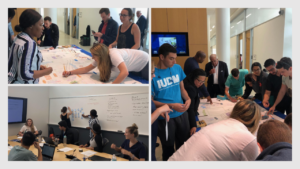
Collaboration across different disciplines can lead to innovative and impactful research and teaching projects. Indeed, it is necessary not only in healthcare but health professions education. I conceptualize and practice collaboration through a design thinking orientation. Here we distinguish a renaissance person from a renaissance team. A renaissance person is a person who is adept in many different areas. But if we take, for example, human health, medical practice is broken up into specialties due to the complexity of the human body and its afflictions. However, the health of one person and indeed a population is not only too complex for a single practitioner (physician) or even a single profession (medicine) or indeed a single sector (healthcare). A renaissance team is a group of people competent in different fields, for example, medicine, education, architecture, and ethics, working together towards a goal, for example, that learners become competent to deliver humanistic, effective health interventions. An innovative and fruitful collaboration I had for a number of years that established my design thinking orientation was with a practicing architect and MFA designer who is now a professor at Kansas State University. We developed and have presented at national and international venues our human-centered design thinking approach to medical education particularly dealing with the wicked problems of ethics in medicine and health and the built environment. Together we developed the pedagogies of Studio Based Learning and the Scalar Approach to Health.
For people who are hesitant to collaborate, my advice would be to start small and focus on building relationships and trust with potential collaborators. It’s important to identify shared goals and interests, and to be open to different perspectives and approaches. Communication and mutual respect are key to successful collaboration, as is a willingness to be flexible and adaptable. Finally, it’s important to recognize that collaboration takes time and effort, a lot of time, but the benefits can be significant, both in terms of personal and professional growth, and in terms of the impact of the work that is produced. It is how innovation takes place.
You have been involved with many initiatives to incorporate art and the arts in healthcare spaces, medical practice, and medical education, including creating ELOQUOR, a medical student literary and art journal at your last medical school, how do the arts enhance medical education and practice?
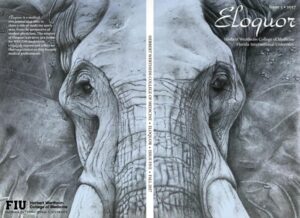
The arts play a vital role in enhancing medical education and practice in several ways. First, the arts promote empathy and understanding. By engaging with art, literature, music, and other forms of creative expression, medical students can gain a deeper appreciation of the human experience of illness and suffering, and can develop greater empathy and compassion for their patients. This can help to foster more meaningful and effective patient-physician relationships, and can lead to better health outcomes.
Next, the arts promote reflective practice and self-awareness. By engaging with art, students and practitioners develop a better understanding of their own values, biases, and assumptions, and can learn to reflect critically on their own practice. This promotes a more self-aware and reflective approach to medical practice, and can lead to better clinical decision-making.
Indeed, the arts and the ability to think creatively promotes innovation in medical practice. By engaging with art, students and practitioners can develop their creativity and imagination thereby learning to approach problems from different angles, which is necessary for addressing complex and challenging clinical problems.
Finally, the arts can help to promote interdisciplinary collaboration and dialogue in healthcare. By engaging with artists, musicians, writers, and other creative professionals, medical students and practitioners can learn to collaborate across disciplinary boundaries, and can develop new insights and perspectives on healthcare issues. This can lead to more interdisciplinary and patient-centered approaches to healthcare, and promotes a more holistic and inclusive understanding of health and wellness.
As the Senior Executive Dean for Faculty Affairs and Learning Innovation at Roseman University College of Medicine (RUCOM), what should clinical educators know about teaching and learning at RUCOM? Or about the services of the office of Faculty Affairs and Learning Innovation?
Clinical educators should be aware that medical education is a dynamic and constantly evolving field that requires a commitment to lifelong learning and professional development. Medical education is not just about the transmission of (or more accurately, the facilitation of the acquisition of) knowledge and skills, but also about fostering critical thinking, problem-solving, and a commitment to ethical, compassionate, and accountable patient care.
At RUCOM, clinical educators can expect to be part of a supportive and innovative learning community that values collaboration, diversity, and inclusion. The Office of Faculty Affairs and Learning Innovation is committed to fostering faculty development and promoting excellence in teaching and learning, and offers a range of services and resources to support clinical educators, including this newsletter! I invite all to look at our webpage.
No person walks this journey alone, who took this journey with you? What keeps you going?
I am happy and humbled to enjoy an abundance of loving, supportive compatriots from ages 7 – 84. Unconditional love for me has come from a companion with four legs and a tail. I find mostly that having a sense of purpose, a sense of responsibility to others, and a commitment to truth, justice, and beauty is what keeps me going. And Dean Greer’s coffee.
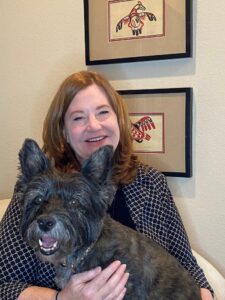
Preceptor: Spring 2023
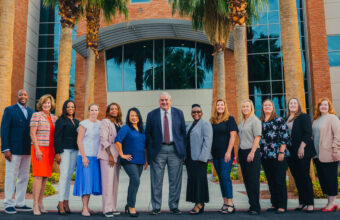
Introduction
Spring 2023

Science of Learning
Human Memory IV

National Trends
Daily Learner’s Contract

Justice
Gender and Use of Professional Title

Health Humanities
Asian Doctors in 1800s Nevada and Today

Featured Resources
Greasewood Tablets & Great Basin History of Medicine Program, JiTT
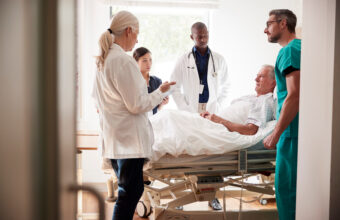
Educator Spotlight
Marin Gillis, LPh, PhD

Announcements
CME Opportunities, Public Talks, and Community Events
Join the Preceptor Mailing List
Page last reviewed: April 25, 2023